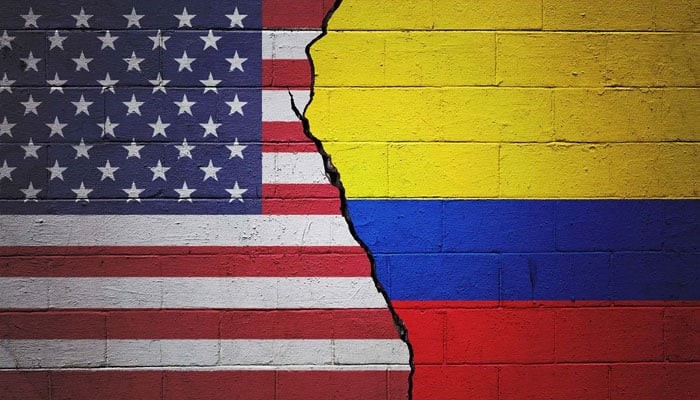Washington accuses Colombia’s President Petro of fueling a cocaine surge, straining decades of cooperation and threatening a once-stable anti-narcotics alliance.

News Desk
WASHINGTON: In an unusually blunt reprimand that has strained one of Washington’s most enduring alliances in Latin America, the United States has accused the government of Colombian President Gustavo Petro of presiding over a sharp rise in cocaine production and trafficking. The charge has cast a shadow over decades of close security cooperation between the two countries, threatening to upend a partnership once held up as a model in the global fight against drugs.
The allegation came from US Treasury Secretary Scott Bassenet, who claimed in a strongly worded statement that Colombia’s cocaine output had soared since Petro took office, warning that this escalation had “direct and devastating consequences on American streets.” He asserted that the surge in supply had driven up drug availability and use across the United States, reigniting public anxiety reminiscent of the peak of the so-called “war on drugs.”
Bassenet went further than the customary diplomatic caution, accusing Petro of having “allowed drug trafficking mafias to flourish” under his watch. The statement amounted to a direct attack on the Colombian president’s drug policy—a radical departure from the decades-long enforcement-driven model Washington had championed. Petro’s government has sought to replace punitive measures and forced eradication with investments in rural development, peace talks with armed groups, and economic alternatives for farmers involved in coca cultivation.
Accompanying Bassenet’s warning was a veiled threat of consequences. Citing the example of former US President Donald Trump, who had “taken decisive action” to halt unchecked narcotics inflows, the Treasury Secretary cautioned that the United States “will not tolerate” a resurgence of drug trafficking networks—language widely interpreted in Bogotá as signaling potential sanctions, aid freezes, or trade repercussions.
The unusually harsh rhetoric represents a dramatic shift in tone from the cautious diplomacy that long characterized Washington’s engagement with Bogotá. For the United States, the accusation reflects growing domestic political pressure to curb drug imports amid an ongoing opioid crisis. For Colombia, it cuts to the heart of national sovereignty and Petro’s broader promise to redefine security and justice through social reform.


